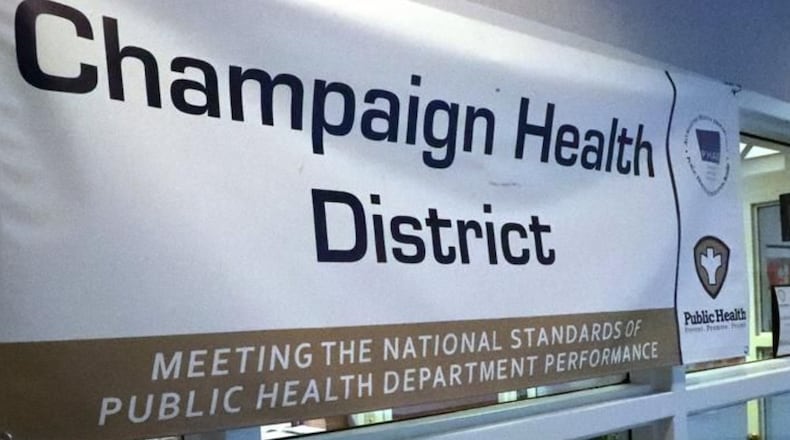Clark County saw its first case of the virus in September and had two total cases reported by ODH as of Monday, but the Clark County Combined Health District has an additional suspected case of the virus, communication coordinator Nate Smith confirmed.
The Clark County cases are unrelated and coming from outside of the county, the health district confirmed. Public health leaders have been working to increase awareness about symptoms and prevention, and outreach efforts to target populations are seeing more people vaccinated against monkeypox, Smith said.
The monkeypox vaccine is still limited and requires the patient to meet certain criteria in order to get it, according to Champaign County health commissioner Gabe Jones.
Those who are eligible for the vaccine are the groups at highest risk of exposure to monkeypox. Men, transgender women and non-binary people who have sex with men and either have risk factors or have a partner with risk factors are eligible, for example.
Risk factors include being HIV positive or living with AIDS, being diagnosed with a sexually transmitted disease or infection in the last 12 months, having a history of multiple or anonymous sex partners, and more.
Having a high risk of being exposed where they work, being a close contact of someone who has been diagnosed with or tested positive for monkeypox, having attended an event or activity where there were monkeypox cases or known transmission can also make someone eligible for the vaccine, according to the health district.
Of the 325 cases of monkeypox reported statewide, more than 95% of cases have been reported among males, according to ODH.
Twenty-six monkeypox vaccines have been distributed in Clark County and three in Champaign County as of Monday.
Jones said Champaign’s health district has not given any monkeypox vaccines in-house, but some patients have gone elsewhere to get it.
“We have some here available as well should the need arise, which has not been the case yet,” Jones said.
Champaign’s health district has also not had any recent requests for the vaccine, and very few inquiries were made about the virus back when Ohio first started seeing cases, Jones said. Those interested in vaccination or who have questions about the virus, though, can reach the health district at 937-484-1605.
Clark County’s health district has been administering between three and six vaccines to people each week for the past month, usually in conjunction with the district’s reproductive health and wellness clinics at its South Village location, Smith said. The health district has also been working to give high-risk people post-exposure prophylaxis to prevent them from contracting monkeypox.
Clark’s health district made a vaccine registration list available to people interested in getting vaccinated against monkeypox. Clark County is administering the JYNNEOS vaccine, a two-dose series given 28 days apart.
Monkeypox spreads in different ways. First, the virus can spread from person-to-person through direct contact with the infectious rash, scabs, or body fluids, according to the Centers for Disease Control (CDC).
It also can be spread by respiratory secretions during prolonged, face-to-face contact, or during intimate physical contact, such as kissing, cuddling or sex. Pregnant people can spread the virus to their fetus through the placenta, the CDC reported.
The rash, which may look like pimples or blisters, sometimes spreads to many areas of the body, or may also stay contained to a particular part of the body, according to the CDC.
Monkeypox can spread from one person to another from the time symptoms start until the rash has fully healed and a fresh layer of skin has formed. The illness typically resolves itself in 2 to 4 weeks and, in some cases, a medication may be available to treat those who have contracted monkeypox.
About the Author


